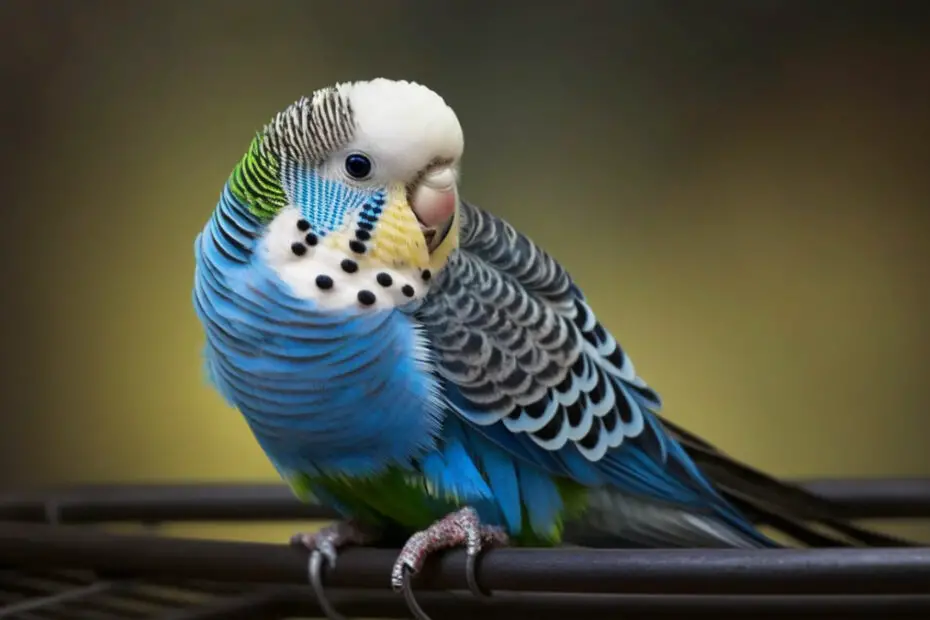Budgies, parakeets, or budgerigars, are social birds that make excellent pets. They also come in various colors and patterns that make them visually appealing. Budgies, like all birds, have an incredible vision far superior to ours.
Are budgies color blind? No, budgies are not colorblind; they can see colors humans cannot. Humans have three color receptors in their retinas, whereas budgies have four cells. This allows them to see color shades, such as the ultraviolet light spectrum, that humans cannot see.
Budgies’ vision is more developed than their sense of smell, so they can tell which food is fresh. Continue reading to learn why budgies are not colorblind.
Are Budgies Color Blind?
Budgies, like all birds, have exceptional vision. They have tetrachromatic vision, which means they have four color receptor cells in their eyes, whereas humans only have three cone cells.
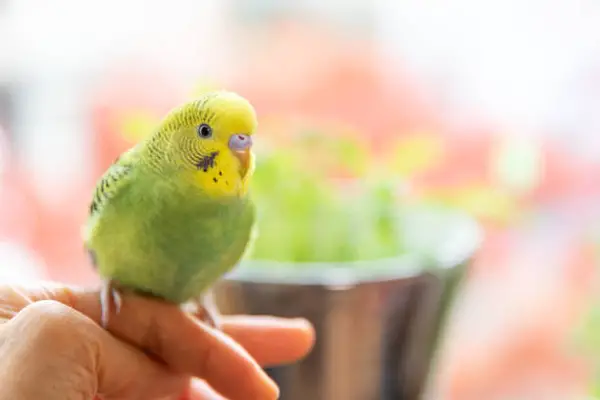
A pet parakeet’s eyes also have a lot of blood vessels called Pecten Oculi, which gives them a better sense of sight and clarity.
So, are budgies color blind? No, budgies do not have color blindness. Their tetrachromatic vision allows them to see colors that we cannot. Budgies can see the UV spectrum and even rainbow colors due to the presence of a fourth retina cone.
According to research, budgies can see subtle differences in color shades that humans cannot. The enhanced vision is a means of survival in the wilderness. Their retina cones have an oil film that allows them to see gradients in colors that we perceive to be the same color.
Humans can only see colors such as red, green, and blue, but a budgie sees colors on the far end of the light spectrum. The only way humans can see such colors is only under UV light.
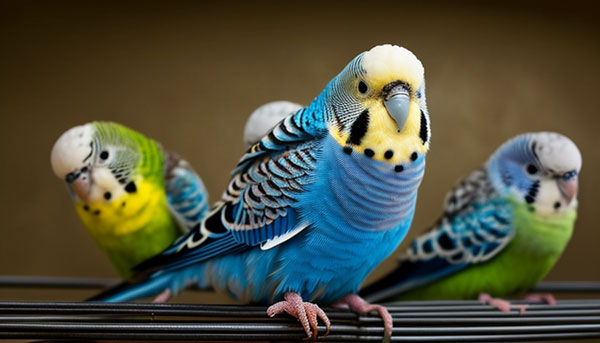
A budgie’s eyes are on the side of its head; this makes it difficult for the budgie to see what is ahead of it. Therefore, they require sharp vision to cover their broad view.
Budgies benefit from color vision because they are diurnal birds and are active during the day. As a result of their color vision, they can identify insects, see a predator’s camouflage, recognize one another, and determine which parakeets are good mates.
Why Is UV Light Vision Important To Budgies?
Budgerigars use ultraviolet light to see the feathers of other budgies. Budgies choose a mate based on the vibrancy and attractiveness of the mate’s feathers. They consider a budgie with more vibrant feathers to be stronger and healthier.
Budgies can tell whether another budgie has spent time in the sun due to their UV light vision. A budgie that has spent a lot of time in the sun has a fluorescence-like glow on its cheek feathers, and they also glow in the dark, making the budgie more appealing as a mating partner.
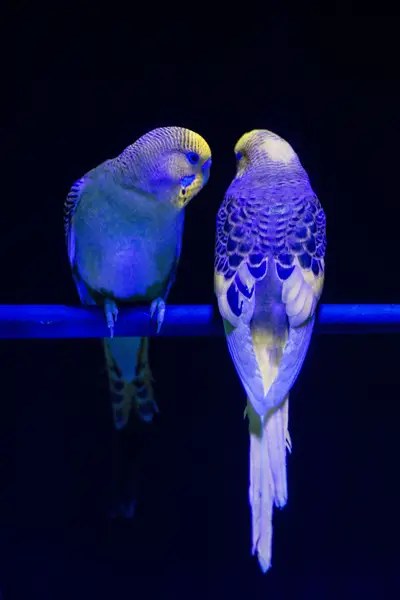
In addition, cheek feathers that glow in the dark and have a fluorescence glow are a sign of good health. As a result, those cheek feathers are appealing to mates.
Budgies can also tell their owners’ moods thanks to their UV vision. When you approach a budgie in a bad mood, it will react differently than when you approach it in a good mood. So, if you want your budgies to bond with you quickly, watch your mood around them.
Also read: Are My Budgies Fighting or Playing?
Is Color Vision Beneficial?
A budgie’s ability to see a broad spectrum of color benefits it in the following ways;
- Budgies have an underdeveloped sense of taste and smell, so their excellent vision helps them tell which vegetables are fresh enough to consume.
Incredibly, they can tell whether fruits are rotten just by sight.
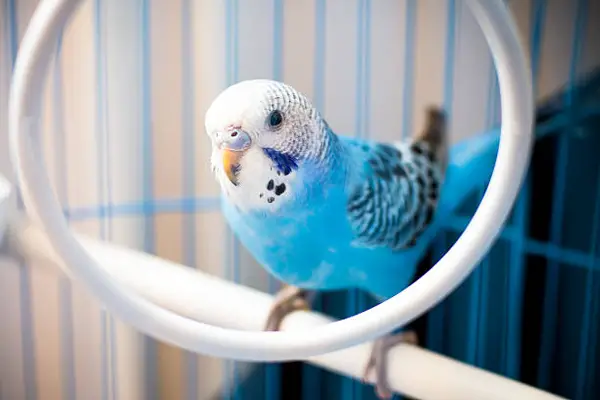
Research also shows fresh fruit looks different from rotten fruit under ultraviolet vision.
- Their heightened color vision enables them to distinguish fruits, insects, and flowers in the wild, making foraging for food more accessible. Some berries have waxy coatings that reflect ultraviolet light, which makes them easily identifiable in the wild.
Therefore, budgies may choose to consume some berries over others even though, under human vision, they may seem the same.
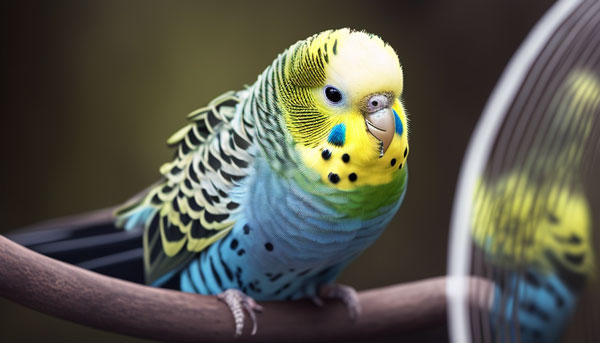
- Budgies are prey animals. So they use color vision to identify predators’ camouflage or trails. Some predators, such as moles, leave urine trails to mark their territories. These trails are obvious under UV light; therefore, budgies can know where the predators are and avoid those areas.
- As we have already discussed, budgies use UV wavelengths to identify the healthiest and most robust mates. When the parakeet is exposed to the sun for an extended period, its feathers become more vibrant. Bright colors translate to a healthy and strong partner.
- Color vision also enables budgies to differentiate their genders. It is pretty challenging for us to identify which budgie is female or male. The truth is that budgies have different UV colors on their plumage according to their genders, which is how they tell each other apart.
- Parakeets use color vision to differentiate their eggs from other birds’ eggs. According to research, eggs have different colors and patterns under UV light, and that is how a budgie can tell its eggs apart.
Does Color Vision Affect Budgies’ Breeding Habits?
Yes, color vision influences how budgies choose mates. Budgies come in various vibrant colors and patterns, making them one of the most popular birds kept as pets.
It turns out that budgies choose their mating partners based on the vibrancy of their colors.
As a result, bright colors dictate the breeding habits of budgies. Budgies have more colorful plumage that is only visible under UV light. These colors indicate which budgies would make good breeding partners.
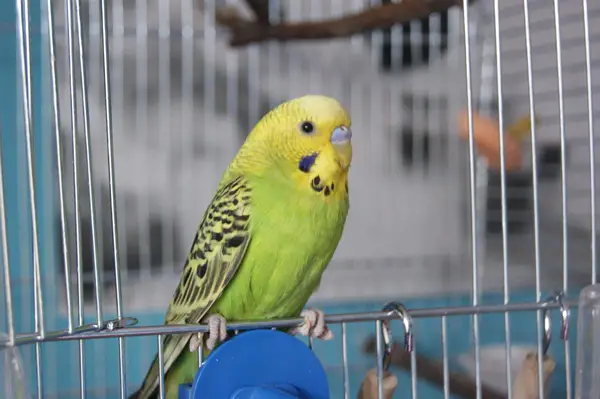
According to research, budgies choose their mating partners based on how many colorations they have and the period they spend in the sun. As previously stated, a budgie that spends a lot of time in the sun has more vibrant feathers, indicating that it is healthier.
As a result, such a budgie has a high chance of being chosen as a mating partner.
Related: Can Budgies Talk?
Related Questions
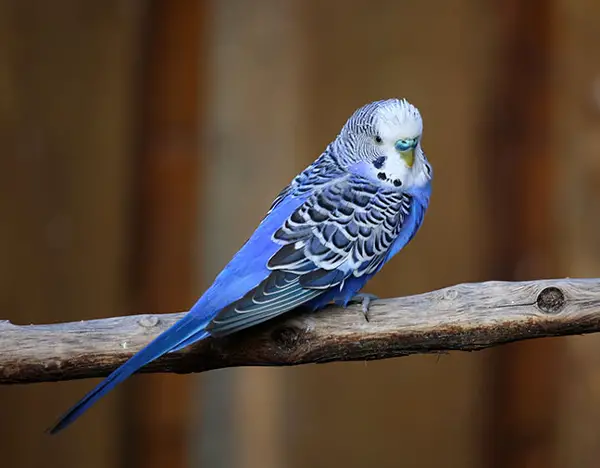
Here are some frequently asked questions.
Research shows that budgies tend to favor green and yellow but dislike red and blue. You can observe this by giving your budgie toys and seeing which it tends to play with. However, it also depends on the bird because some budgies do not like yellow but like blue.
Parakeets are tetrachromats; they see all colors including UV light. They can differentiate subtle gradients in colors we perceive to be the same color.
Budgie feathers only glow at night if it has spent time outside in the sun. Other budgies can see the fluorescent glow from budgies’ feathers who spent time in the sun. Budgies consider this as an indicator of a good and healthy mate.
Conclusion
Budgies have excellent vision and are most definitely not color blind. They are tetrachromatic, which enables them to see UV light that is invisible to humans. UV light helps them identify fresh food and predators out in the wild.
We hope this guide answered the question –are budgies color blind and helped you understand why color vision is essential to budgies. Now you know that your little feathered friend has a superpower!
